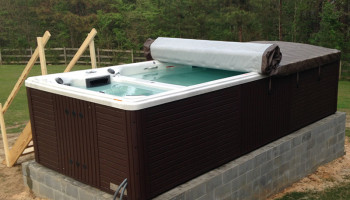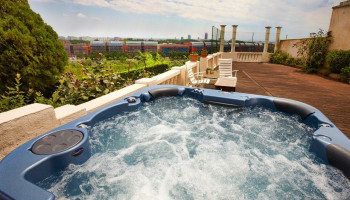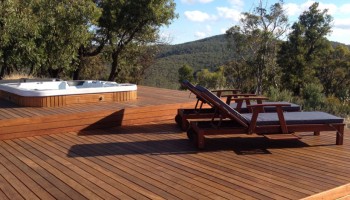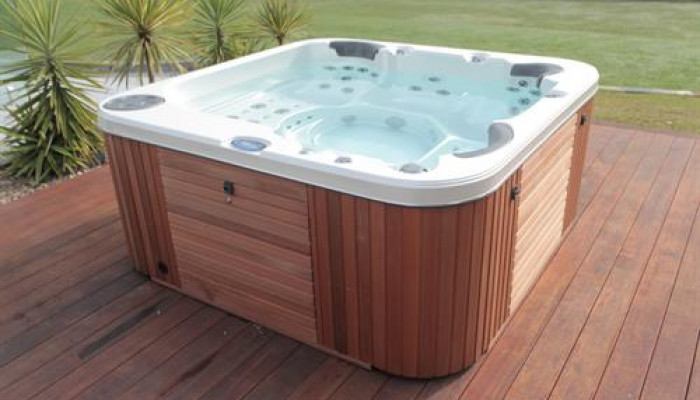
Planning to buy or set up a spa pool or swim spa? It pays to know the rules early. Sydney follows New South Wales state regulations, with local councils or certifiers confirming any site-specific requirements.
After operating in NSW for over 16 years, we know spa compliance inside and out. This guide covers the most important aspects of Sydney’s spa regulations so you can move ahead confidently and stay compliant.
If you have any specific questions, don’t hesitate to give us a ring or flick us a text and we’ll help you out.
Which Types of Spas Require Permits, and Which Don’t?
Rules for spa pools
Spa pools under 2000L do not need a building permit. Most of our spa pools fall under this threshold, making installation straightforward. The main exceptions are our larger spa pool models, such as the myTeam spa, which is 3000L.
You’ll find the water volume and permit indication on each spa’s product page, and our team can confirm what applies to your site.
If your spa pool is over 2000L, you need to get a permit, usually in the form of a Complying Development Certificate (CDC). Depending on your site, there may be other restrictions to be aware of, which you’ll need to clarify with your local council.

Rules for swim spas
Swim spas are in a different category because of their volume and footprint. All of our swim spas are over 4000L, so they will need the appropriate approvals.
We’ll take care of all spa and swim spa installation compliance requirements so you can have peace of mind that your spa pool is up to standard.
Registering Your Spa Pool or Swim Spa in NSW
Once your spa pool or swim spa has been installed and any required approvals have been finalised, you will need to register it on the NSW Government's Swimming Pool Register.
You will then be issued with a certificate of registration. If you purchase your spa pool from mySpa Sydney, we’ll take care of this process for you.
Sydney Spa Pool & Swim Spa Fencing Regulations
The Swimming Pools Regulation 2018 stipulates that spa pools and swim spas don’t need a fence or safety barrier, so long as it’s covered by a lockable and child-resistant spa pool cover that can be operated by one person.
It pays to double-check this with the council or your local certifier, though. At mySpa Sydney, we’ll work with you to ensure that your spa pool is installed in a way that’s safe, compliant, and beautiful.
If you don’t have a lockable cover
If your spa pool does not have a lockable child-proof cover, you’ll need to build a surrounding fence that’s at least 1.2 metres high and designed so that kids can’t climb over or crawl under it.
Your fence will need to be installed within two months of installing your spa pool, and checked before your spa can be filled with water.
Our team of exceptional contractors can construct a safe and attractive fencing solution as part of your spa pool installation.
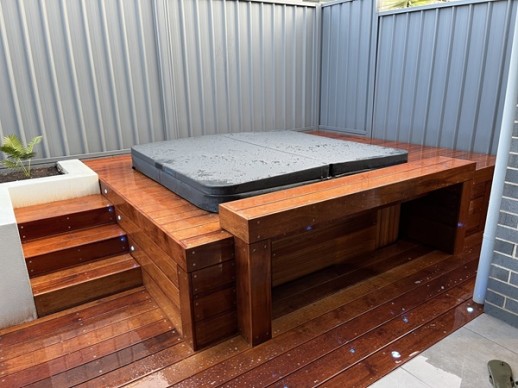
Gate requirements
The gate used to enter your spa pool must be self-closing and swing outward from the spa pool. The latch will need to be at least 1.5 metres above ground level so that kids aren’t able to open it.
For more information, check out the pool safety checklists page on the NSW Government’s Swimming Pool Register.
Does Your Spa Need a CPR Sign?
Yes, it’s a legal requirement to have a CPR sign displayed near your spa pool or swim spa. The sign must be in good condition and be prominently positioned in a way that it can be easily readable from three metres away.
You can buy a CPR sign at your local pool shop, St John Ambulance, the Australian Red Cross, or Royal Life Saving Society.
Make sure to take the information on the sign very seriously. You and your family should become familiar with the steps involved in CPR in case you ever need to use it.
What Happens if You Don’t Comply with Sydney’s Spa Pool Regulations?
If you don’t get a permit for your spa, you may have to pay a penalty.
But it’s not only against the law not to get a permit for your spa – non-compliant pools are detrimental to the value of your property. Should you decide to sell your home, prospective buyers will have grounds to negotiate the price due to the hassle of assessing and potentially removing the spa pool from the property.
Another risk to keep in mind is that, if your spa pool isn’t compliant, your insurance provider likely won’t cover you for any accidents involving your spa.

